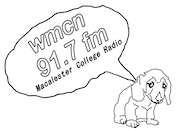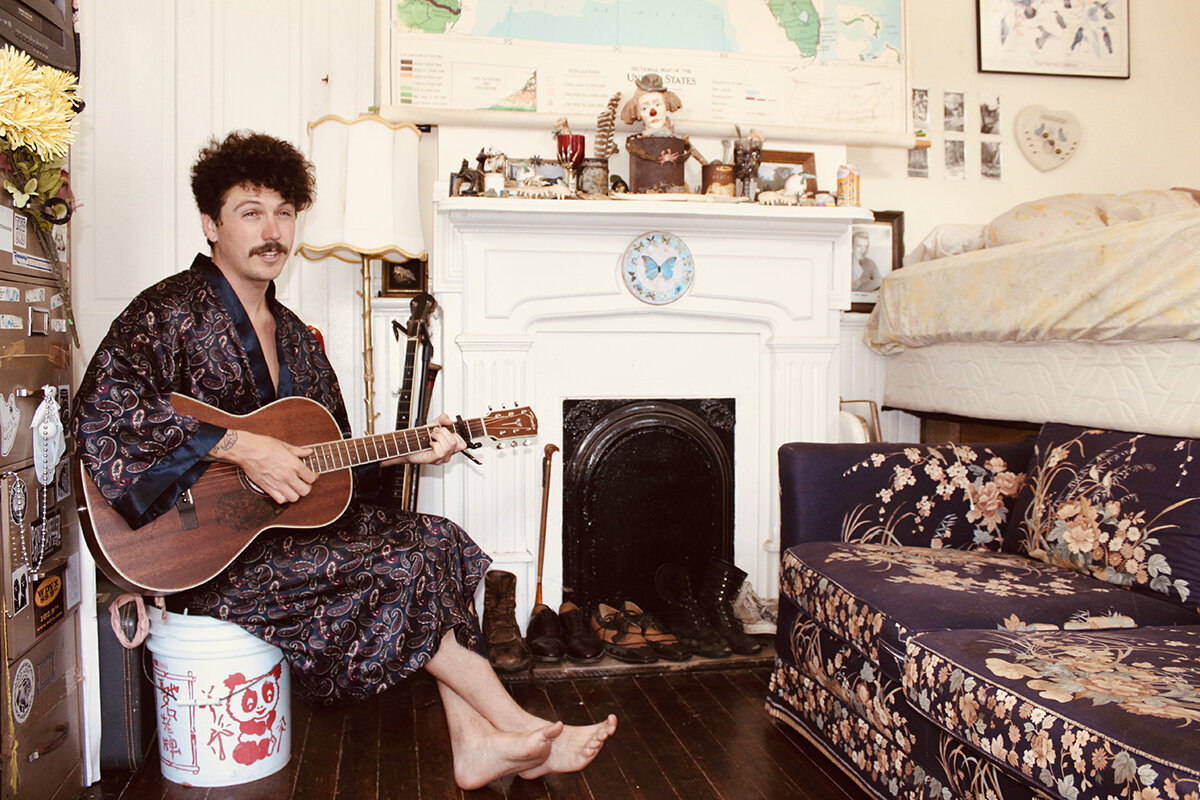“This is a mouth bow, not a mouth harp or jaw harp or whatever else you want to call it,” says Nick Shoulders, about halfway through his set. “It’s also the world’s oldest stringed instrument.” He adds there’s something to be said about playing an instrument depicted in cave-paintings from South Africa to France, millennia before music belonged outside of small communities, and launches into a droning, wordless version of “Arkansas Traveller.”
There’s also something to be said about the unique feeling of seeing an artist fill a bigger room than they did a year and a half ago. The last time I saw Nick, it was the fall of my freshman year and he’d sold out the Entry. Half the crowd waltzed in cowboy hats and boots, a dog named Mousetrap slept on stage, and I stood so close that I could feel the yodeling in my ribcage. At the Fine Line last Friday, by contrast, the dance floor was packed with quarter-zips and ballcaps, scarcely a pearl-snap to be found.
Even craning from the back row, Shoulders & Co. brought us a powerful show. Now equipped with a full band, clearly in good form from the last few weeks spent on the road, Shoulders ran through the songs that blew him up on YouTube February of 2020. Beer was sloshed, choruses were sung with gusto, and a good time was had by all. Shoulders rode on the strength of these well-known numbers to deliver four new songs — a good 30% of the set — that we can look forward to hearing on a yet-to-be-officially announced record coming this September.
When such distinctly Southern artist with a direct and stated connection to Southern folk music begins to fill bigger and bigger rooms, I wonder what brings so many people in the doors. Of course, most of it is that the band is hot and the songs are beautiful. There’s also probably a draw to the character people see in Shoulders; although I doubt it’s much of an act for him, for those of us raised above the Mason-Dixon line (especially those of us born after 9/11), seeing a guy in a mullet yodeling songs about race and class is a novel experience. It challenges stereotypes of several kinds.
Standing in that room, I also couldn’t help but scan the crowd and wonder what their connection to American folk music is. We all have one, even if we didn’t grow up like Shoulders, singing songs passed down from our grandparents and playing tunes on PVC bows. As a toddler in NYC, I’d fall asleep every night to Pete Seeger albums. Sometimes I’d lie awake for hours, attempting to figure out the narratives in lyrics about courting frogs and union men. At 5-ish, I begged my parents to take me to his show at the Brooklyn Botanical Gardens, and was awe-stricken when I got to shake the hand of the man whose music I’d become so obsessed with. Though at the time I probably didn’t realize that Seeger hadn’t written any of his songs, this early fascination gave me a basic knowledge of American folk music and colored the way I have listening to music my entire life.
All this is to say that when Shoulders played “Arkansas Traveller,” I knew the story behind those notes. The song, in the oldest of its many forms (you might recognize it as the tune about squishing a baby bumblebee), tells the tale of a wealthy traveller who, after losing his way in the rainy woods, asks for help from a fiddling squatter in a cabin. They go back and forth, with the traveller poking fun at the squatters way of life and the squatter shooting back with wise-cracks.
And, when the rain came down on the cabin floor,
Lyrics to the version of “Arkansas Traveller” transcribed by state officials in 1947
The squatter only fiddled all the more.
Why don’t you mend your roof, said the traveler bold.
How can I mend my cabin when the rain is wet and cold?
Squatter pick a sunny morning when the air is dry and nice,
Patch up your cabin, that is my advice.
The squatter shook his hoary head, and answered with a stubborn air,
Cabin never leaks a drop when days are bright and fair!
We, as a nation, have been systematically divorced from our folk traditions since the dawn of recorded music. When we are presented with an artist like Shoulders, who not only comes from a lineage of whistlers and yodelers, but has also done deliberate work to know his roots well, we can’t approach it like the traveller. In a time when alienation defines the jobs we work, the people we talk to, and the way we vote, a critical knowledge of one’s roots can not only guide us, but provide us with a sense of meaning and place. If Nick Shoulders music is helping anyone get there, then I hope he sells out stadiums.
Cover photo by Heather Littlefield


